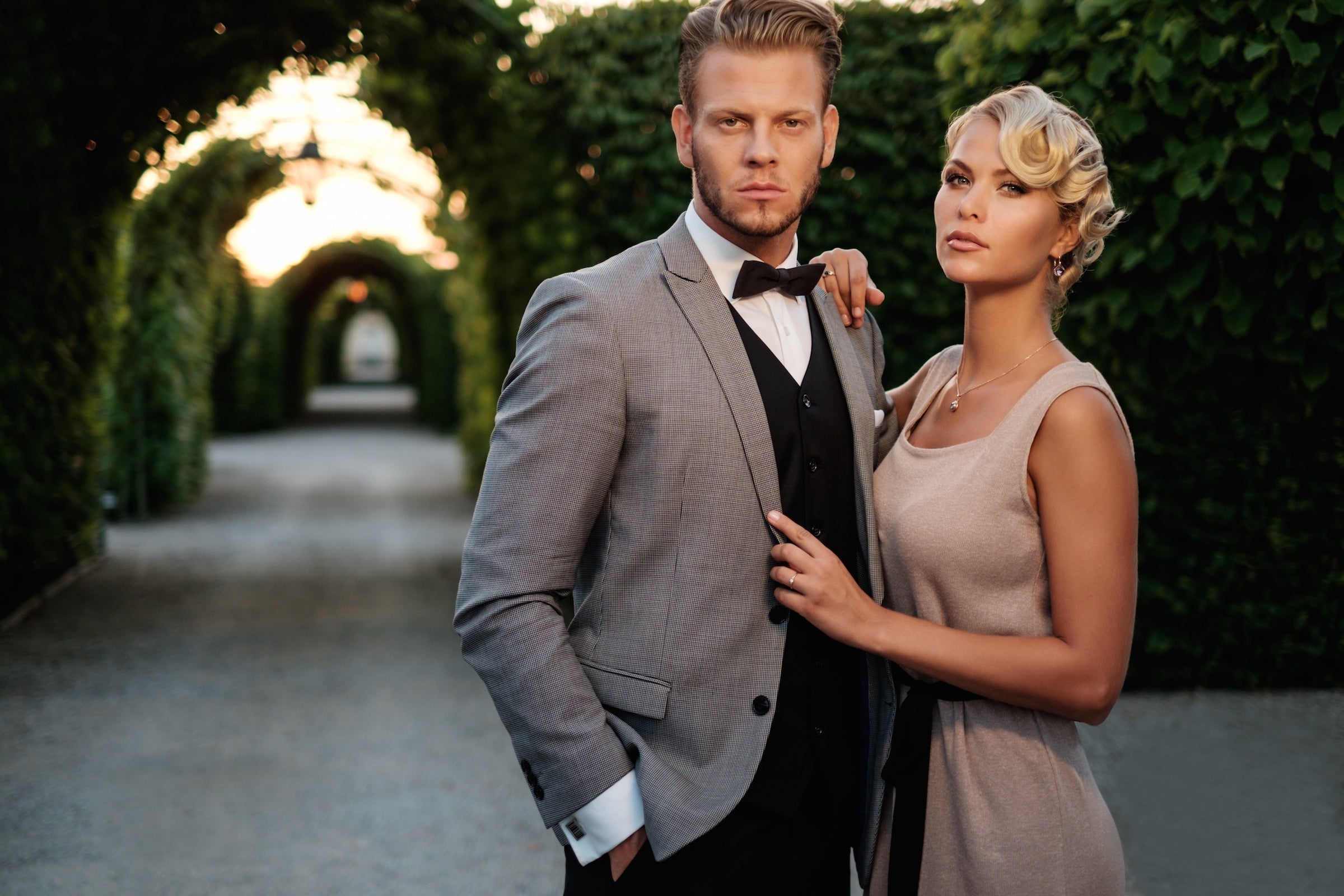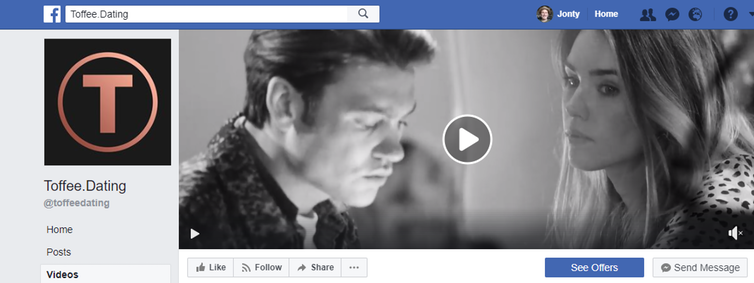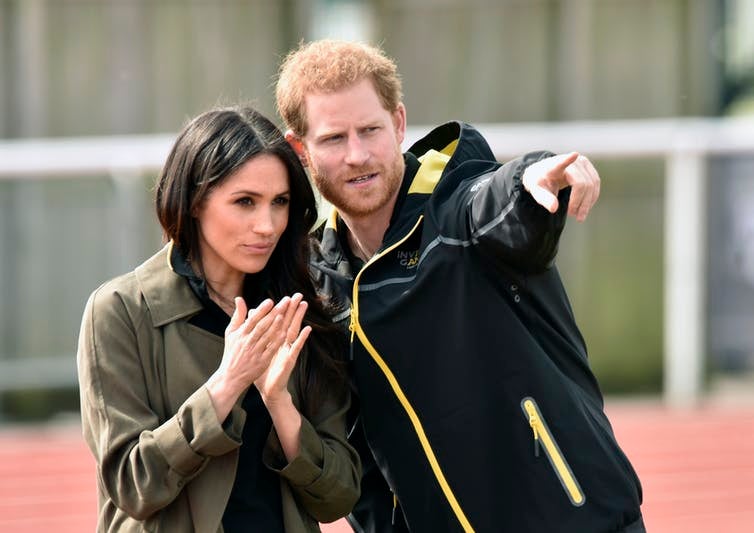Toffee Dating: why I won't be using the new 'private school only' app
Research shows that it’s all about choice, not exclusivity, when it comes to finding a perfect match

Your support helps us to tell the story
From reproductive rights to climate change to Big Tech, The Independent is on the ground when the story is developing. Whether it's investigating the financials of Elon Musk's pro-Trump PAC or producing our latest documentary, 'The A Word', which shines a light on the American women fighting for reproductive rights, we know how important it is to parse out the facts from the messaging.
At such a critical moment in US history, we need reporters on the ground. Your donation allows us to keep sending journalists to speak to both sides of the story.
The Independent is trusted by Americans across the entire political spectrum. And unlike many other quality news outlets, we choose not to lock Americans out of our reporting and analysis with paywalls. We believe quality journalism should be available to everyone, paid for by those who can afford it.
Your support makes all the difference.I do sympathise with Lydia Davis, who has launched a new dating app called Toffee Dating, “for people on the posher end of the spectrum”. She was tired of feeling “overwhelmed” at the “dearth of potential partners” and thought others might feel the same. Others who, having been to private school, found themselves more alone than ever after endless internet-enabled dates with people that, one assumes, were educated at state school.
By its very name, Toffee Dating, makes clear the sort invited to pay its £4.99 download fee and £4.99 monthly membership: not just those who were privately educated, but those who believe that their fee-paying school background is the very key to their essential being. Toffee is to help toffs better twiddle that key.
But as I say, I do sympathise. The sense of swimming through a sea of romantic junk food, subsisting on a diet of a piece of fried chicken here, a cheeseburger there, also hit me the second I turned to internet dating when a lengthy relationship ended in July 2016.
After an initial and horrifying deep dive into a number of websites, as well as Tinder, the urge to cut out the dross was very strong indeed. At one end of the spectrum I didn’t think I could handle one more over-confident stud demanding instant sex, or at the other, another pretentiously lefty charity worker or architect deigning to arrange a date with me at snail-like speed and then, once on the date, telling me all about his love of some bearded songster I’d never heard of.
I too would have jumped at the chance to narrow down the field to people like me. My dream utterance would have gone something like this: “Zoe, you’ll never need to meet another pushy hornball or guitar-playing Oxfam strategist again. There’s this new app that caters to people exactly like you: intellectual snobs with lots of degrees who hate prosecco and love champagne and Margaret Thatcher!”

Somehow I persisted, though, and soon noticed something funny – whenever I tried a dating service that purported to be socially exclusive in any way, I made fewer and worse matches.
Radley meets Roedean
Which brings me to why Davis’s idea, however good it sounds, is doomed to fail. First, when it comes to dating, promises of social exclusivity are bunk. Not only was this evident in my experience, it also emerged in the PhD research I was conducting at the time about the British matchmaking industry in the 1970s and 1980s. The dating entrepreneurs I studied all boasted about how exclusive their outfits were, but when I interviewed people who had actually used these services, they all said their dates were no better – and often worse – than the ones they encountered in less exalted forums.
It is striking that 60 per cent of my interviewees used personal ads and computer dating services designed for the “hoi polloi” and 40 per cent used “exclusive” agencies. Of the former, roughly 75 per cent found love in some form; of the latter, only about 25 per cent did. In the internet era, digital scholars have highlighted the importance of the sheer quantity of options available online – it’s not by whittling down possible dates that people tend to find love.
Perfect match?
The reason, of course, is that dating is not like furniture or truffles or perfume – you can’t just get to the “right” shop and find the perfect product at the going rate. Dating services trade on people and, more specifically, on people’s perceptions of themselves and how they come across – which they get wrong most of the time. Narrowing the pool down to those who think they’re brilliant is therefore asking for trouble. When it comes to partner searching, you actually need the rough so that you can find the diamonds.

Then there’s the fact that schooling is a ridiculous metric for assessing someone’s suitability. As I’ve already made plain, I am a complete snob. But the idea that someone having paid to put you through Radley or Gordonstoun (or in my case, Bedales for A-levels) indelibly marks you with a unique kind of quality is painful. Anyone with half an ounce of decency must know that your school’s price tag has very little to do with your intelligence, character, humour, kindness and ambition – the most important traits in a partner.
Some studies have suggested that private school equips pupils with a confidence that gives them a professional boost, but so what? Most of the best people I know – cleverest, funniest, most interesting – went to state school. By contrast, trying to get through dinner with “Henry, Wellington College” or “Toby, Charterhouse” sounds as if it may be a bit painful.
Vive la difference
Yes, I’ve had my share of awful and degrading run-ins with the masses on Tinder, but I’ve also met fascinating men, including my most recent (ex) boyfriend – none of whom had remotely similar schooling to me. In the end, the best thing about Tinder and its ilk is their variety. Once you’ve waded through the dross, it can actually be enriching, mind expanding and very attractive to find someone from a different background.
A major recent study backed this up by finding that dating apps have resulted in unprecedented rates of mixed-race marriages. When given the chance, the researchers asserted, it’s difference – not sameness – that we crave. Just ask Prince Harry and Meghan Markle – hardly a match made in Toffee Dating heaven.
I wish Davis and her band of lonely toffs well – but if they are anything like me, it may well not be long till they’re all back on Tinder again.
Zoe Strimpel is a postdoctoral research fellow at the University of Sussex. This article was originally published on The Conversation (theconversation.com)
Join our commenting forum
Join thought-provoking conversations, follow other Independent readers and see their replies
Comments